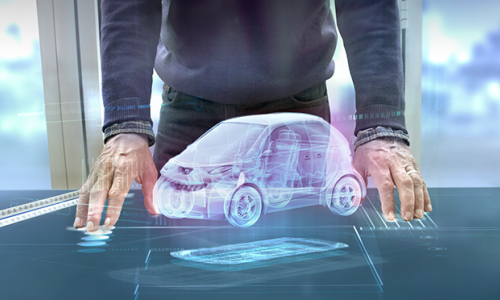The automotive sector is undergoing change at a pace that is faster than the industry has ever seen. The UK government has announced that the sector must go fully electric from 2030, which seems extremely ambitious when internal combustion engines have been a feature of cars since earlier pioneers like Henry Ford started selling vehicles.
This means that there is a very strong focus on 100% electric vehicles - EVs. All the major auto brands have been revamping their range to include EV options. The Fiat 500 has been converted to run 100% as an EV. Nissan has been producing the Leaf for just over a decade now, with the second generation launched in 2017. VW has been highly visible with their ads for the electric ID range at the delayed Euro 2020 football tournament. The opening match even featured a remote-controlled VW delivering the match ball to the referee - a highly popular move that was commented on across all the social networks.
But are consumers happy about the big switch to EVs?
It's a big question. If there was no formal timeframe for the phasing out of petrol and diesel cars then EVs could exist alongside traditional cars, but the deadline is only a few years away. Consumers will increasingly see EVs as the only sensible option as we get closer to the year 2030, but they are confused.
Recent research by Ford explored the anxiety of UK consumers. Almost half (46%) of the British people surveyed said they don't intend to buy an electric vehicle in the future, while a fifth (21%) say they will likely not consider an electric vehicle for the next 5 years. A further fifth (20%) said they will likely only purchase in the next 3-5 years. The reasons for consumer hesitance to electrified vehicles are mixed, with range anxiety (37%), apparent lack of affordability (53%) and worries about where to charge (51%) being cited as critical deterrents.
Issues like range anxiety arise because people are used to filling their car at petrol stations. An EV will usually be on charge when parked at home, so when you go out then your car should usually be 100% charged. The average car journey in the UK is around 8 or 9 miles. Range anxiety is real, but it's not often that you will ever be doing long drives that approach the capacity of the battery.
One of the problems at present is that we are still approaching the marketing and sale of EVs as if they are exactly the same as petrol vehicles. Customers have doubts and questions. They need to understand what they need to setup at home so they can charge easily and how they can charge on the road if they ever do need to drive cross-country.
Individual brand websites feature glossy mountain-road images, but there is a real need across the entire industry for education and hand-holding. There is almost as much information out there telling people to not buy an electric car, so it's no surprise that consumers can be confused.
Auto brands need to rethink the traditional sales process. They need to get more involved with potential customers. They need to offer much more guidance than that required for a traditional sale. The dealerships need something else, somewhere to point potential customers with detailed questions about EVs.
Whichever brand gets this right will enjoy a dramatic boost in EV sales. By proactively educating customers and easing their concerns - perhaps even connecting prospective customers to existing EV customers - the auto brands can reassure their customers.
The opportunity is out there to redefine the auto customer journey. Don't just sell an image of cars driving along twisting roads, help your customers to learn why your EV would be perfect for them.
For more information on how TTEC is driving digital transformation and omnichannel customer experiences in EMEA, visit www.ttec.com/emea.
CC Photo by Benjamin Child






